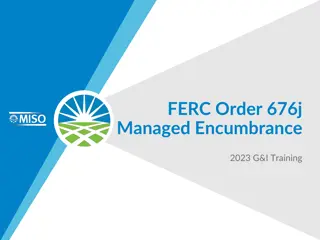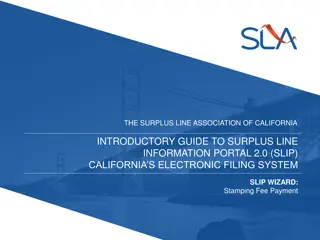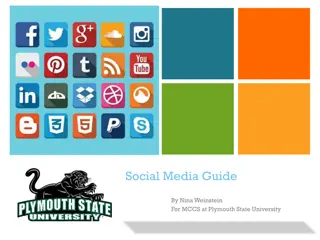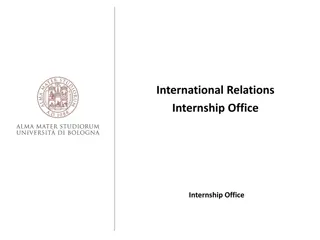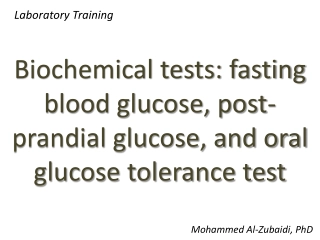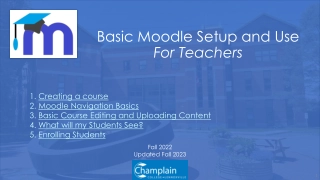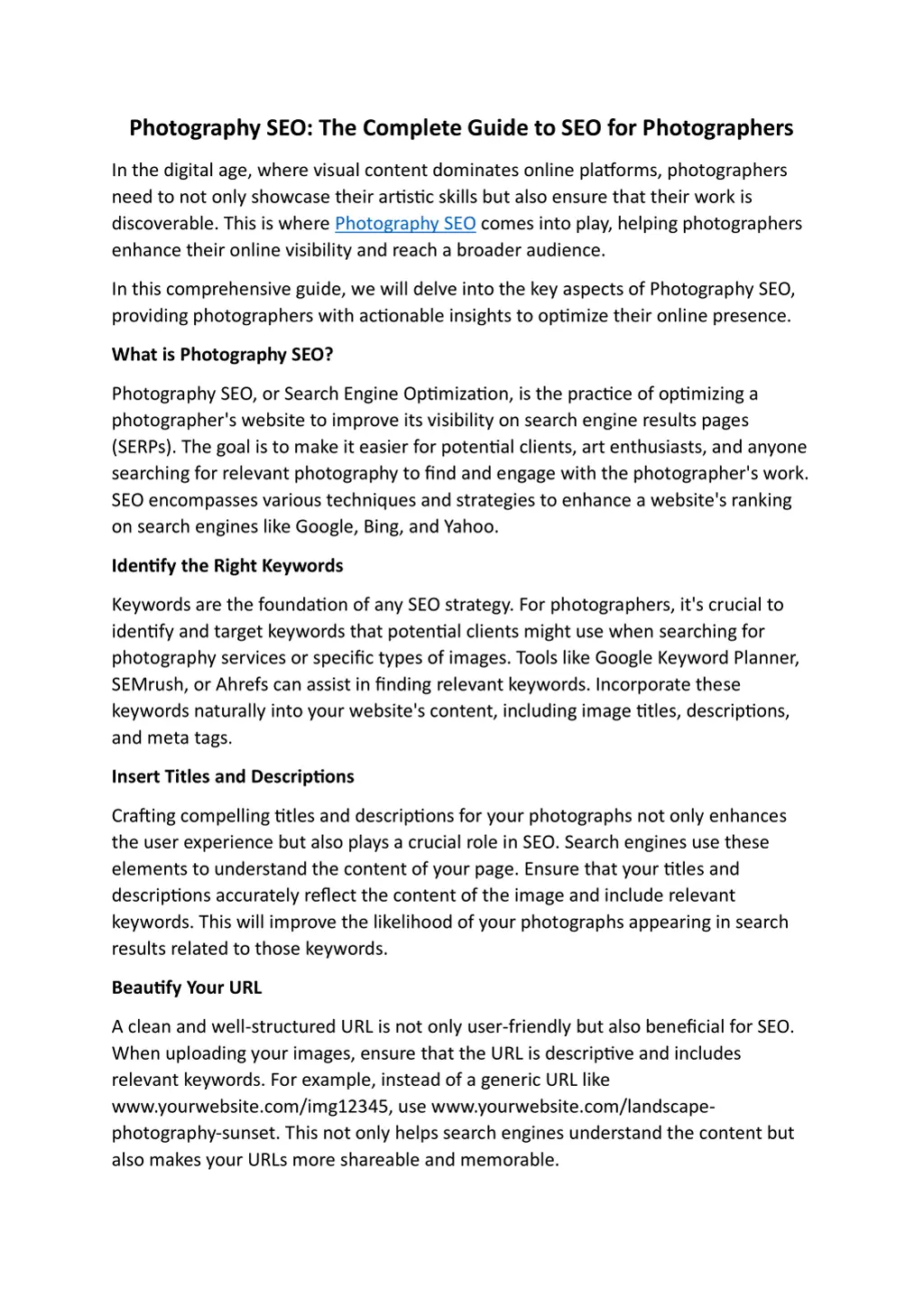
Photography SEO - The Complete Guide to SEO for Photographers
In the digital age, where visual content dominates online platforms, photographers nneed to not only showcase their artistic skills but also ensure that their work is ndiscoverable. This is where Photography SEO comes into play, helping photographers nenhance their online visibility and reach a broader audience. nIn this comprehensive guide, we will delve into the key aspects of Photography SEO, nproviding photographers with actionable insights to optimize their online presence.n
Uploaded on | 0 Views
Download Presentation
Please find below an Image/Link to download the presentation.
The content on the website is provided AS IS for your information and personal use only. It may not be sold, licensed, or shared on other websites without obtaining consent from the author. Download presentation by click this link. If you encounter any issues during the download, it is possible that the publisher has removed the file from their server.
Presentation Transcript
Photography SEO: The Complete Guide to SEO for Photographers In the digital age, where visual content dominates online platforms, photographers need to not only showcase their artistic skills but also ensure that their work is discoverable. This is where Photography SEO comes into play, helping photographers enhance their online visibility and reach a broader audience. In this comprehensive guide, we will delve into the key aspects of Photography SEO, providing photographers with actionable insights to optimize their online presence. What is Photography SEO? Photography SEO, or Search Engine Optimization, is the practice of optimizing a photographer's website to improve its visibility on search engine results pages (SERPs). The goal is to make it easier for potential clients, art enthusiasts, and anyone searching for relevant photography to find and engage with the photographer's work. SEO encompasses various techniques and strategies to enhance a website's ranking on search engines like Google, Bing, and Yahoo. Identify the Right Keywords Keywords are the foundation of any SEO strategy. For photographers, it's crucial to identify and target keywords that potential clients might use when searching for photography services or specific types of images. Tools like Google Keyword Planner, SEMrush, or Ahrefs can assist in finding relevant keywords. Incorporate these keywords naturally into your website's content, including image titles, descriptions, and meta tags. Insert Titles and Descriptions Crafting compelling titles and descriptions for your photographs not only enhances the user experience but also plays a crucial role in SEO. Search engines use these elements to understand the content of your page. Ensure that your titles and descriptions accurately reflect the content of the image and include relevant keywords. This will improve the likelihood of your photographs appearing in search results related to those keywords. Beautify Your URL A clean and well-structured URL is not only user-friendly but also beneficial for SEO. When uploading your images, ensure that the URL is descriptive and includes relevant keywords. For example, instead of a generic URL like www.yourwebsite.com/img12345, use www.yourwebsite.com/landscape- photography-sunset. This not only helps search engines understand the content but also makes your URLs more shareable and memorable.
Make It Mobile-Friendly With the increasing use of smartphones and tablets, having a mobile-friendly website is essential for both user experience and SEO. Google considers mobile friendliness as a ranking factor, so photographers must ensure that their websites are responsive and provide a seamless experience across various devices. This not only improves your website's search engine ranking but also caters to the growing number of users accessing the internet through mobile devices. Add Alt Text to Your Images Alt text, or alternative text, is a crucial element for both accessibility and SEO. Search engines use alt text to understand the content of images since they can't "see" images in the same way humans do. When adding alt text to your images, be descriptive and include relevant keywords naturally. This not only improves your SEO but also ensures that your website is accessible to users with visual impairments. Create Good and Relevant Textual Content While photography is a visual medium, having good textual content on your website is essential for SEO. Search engines rely on text to understand the context and relevance of a page. Create high-quality, relevant content that complements your images. This could include blog posts, photo captions, and About Me pages. Use keywords naturally within your content to boost your website's relevance for search queries. Get Exposure and Backlinks Exposure and backlinks play a significant role in SEO. The more reputable websites link to your photography website, the higher your site's authority becomes in the eyes of search engines. Actively seek opportunities to showcase your work on other platforms, collaborate with other photographers, and participate in photography communities. This not only increases your exposure but also generates valuable backlinks to your website, enhancing its SEO. Go for Local SEO For photographers targeting a specific geographic area, local SEO is paramount. Ensure that your business is listed on Google My Business and other local directories. Optimize your website for local search terms, such as "wedding photographer in [your city]." Encourage satisfied clients to leave reviews, as positive reviews are a crucial factor in local SEO rankings. Localizing your SEO efforts increases the chances of attracting clients within your vicinity. In conclusion, Photography SEO is a multifaceted approach that involves optimizing various elements of your website to enhance visibility on search engines. By
identifying the right keywords, optimizing titles and descriptions, creating a mobile- friendly website, adding alt text, producing quality textual content, building exposure and backlinks, and focusing on local SEO, photographers can significantly improve their online presence and attract a broader audience. Incorporating these strategies into your digital marketing efforts will not only showcase your photography skills but also ensure that your work is easily discoverable by those seeking your unique talents.


















